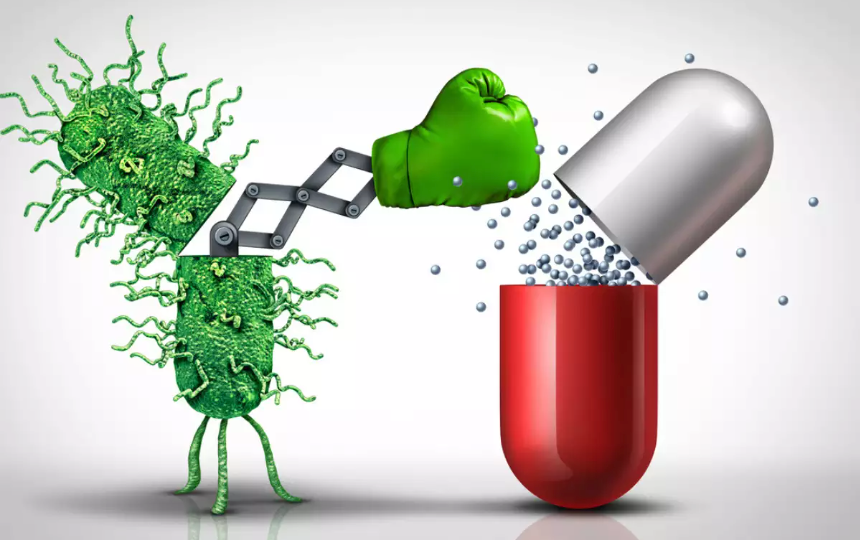Usage and Resistance Of Antibiotics – In the realm of modern medicine, antibiotics play a pivotal role in combating bacterial infections and saving countless lives. However, their rampant and indiscriminate use has led to a surge in antibiotic resistance, posing a significant threat to public health worldwide.

In this comprehensive guide, we delve into the crucial aspects of antibiotics, their appropriate usage, and the growing concern of antibiotic resistance.Usage and Resistance Of Antibiotics.
Usage and Resistance Of Antibiotics
- What Are Antibiotics? Antibiotics are powerful medications designed to combat bacterial infections by either killing the bacteria or inhibiting their growth. They are not effective against viruses, such as the common cold or flu. Developed over decades of scientific research, antibiotics have revolutionized healthcare by providing effective treatment for a wide range of bacterial illnesses. Usage and Resistance Of Antibiotics.
- When Are Antibiotics Necessary? Antibiotics are prescribed by healthcare professionals to treat bacterial infections, including strep throat, urinary tract infections, and bacterial pneumonia, among others. It’s essential to understand that antibiotics are not a cure-all solution and should only be used when deemed necessary by a qualified medical practitioner.
- The Dangers of Overuse and Misuse: Overuse and misuse of antibiotics are significant contributors to the rise of antibiotic resistance. When antibiotics are used unnecessarily or incorrectly, bacteria can develop resistance, rendering these medications ineffective. This phenomenon not only compromises individual treatment outcomes but also poses a grave threat to global public health by limiting the effectiveness of antibiotics in combating bacterial infections. Usage and Resistance Of Antibiotics.
- Antibiotic Resistance: A Growing Concern: Antibiotic resistance occurs when bacteria evolve and adapt to withstand the effects of antibiotics, making the medications less effective or entirely ineffective. Factors contributing to antibiotic resistance include the overprescription of antibiotics, incomplete treatment courses, and the agricultural use of antibiotics in livestock. Addressing antibiotic resistance requires a multifaceted approach involving healthcare providers, policymakers, and the general public.
- Strategies to Combat Antibiotic Resistance: Combatting antibiotic resistance requires concerted efforts at various levels. Healthcare providers can promote judicious antibiotic prescribing practices, emphasizing the importance of accurate diagnosis and appropriate antibiotic selection. Patients can play a role by adhering to prescribed treatment regimens, avoiding the use of antibiotics for viral infections, and practicing good hygiene to prevent the spread of bacterial infections.
- The Role of Research and Innovation: Research and innovation are essential in the fight against antibiotic resistance. Scientists are continually exploring new antibiotic compounds, alternative treatment approaches, and strategies to enhance antibiotic stewardship. Additionally, efforts are underway to develop vaccines against bacterial infections, reducing the reliance on antibiotics for disease prevention.
- Public Awareness and Education: Public awareness and education are integral to stemming the tide of antibiotic resistance. Educational campaigns can raise awareness about the appropriate use of antibiotics, the consequences of antibiotic resistance, and the importance of preserving these critical medications for future generations. By fostering a culture of responsible antibiotic use, we can safeguard the effectiveness of antibiotics for years to come.
Conclusion: Antibiotics have undoubtedly transformed modern medicine, saving countless lives and alleviating suffering from bacterial infections. However, their overuse and misuse have led to the emergence of antibiotic resistance, posing a significant threat to global health. By adopting judicious antibiotic prescribing practices, promoting public awareness, and investing in research and innovation, we can mitigate the impact of antibiotic resistance and ensure the continued efficacy of these life-saving medications. Remember, when it comes to antibiotics, knowledge is power, and responsible usage is paramount.
Related searches about Usage and Resistance Of Antibiotics
how to treat antibiotic-resistant bacteria
antibiotic resistance
how does antibiotic resistance occur
5 mechanisms of antibiotic resistance
how to prevent antibiotic resistance
how long does antibiotic resistance last
antibiotic resistance examples
antibiotic-resistant bacteria examples.